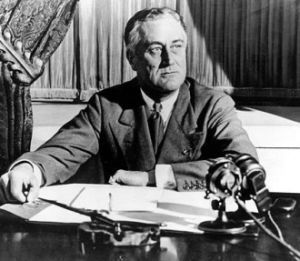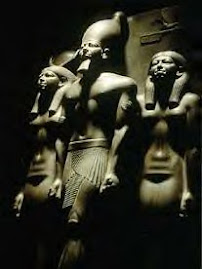


The picture above is very sad.

The Second Bill of Rights was a proposal made by United States President Franklin D. Roosevelt during his State of the Union Address on January 11, 1944 to suggest that the nation had come to recognize, and should now implement, a second bill of rights. Roosevelt did not argue for any change to the United States Constitution; he argued that the second bill of rights was to be implemented politically, not by federal judges. Roosevelt's stated justification was that the "political rights" guaranteed by the Constitution and the Bill of Rights had "proved inadequate to assure us equality in the pursuit of happiness." Roosevelt's remedy was to create an "economic bill of rights" which would guarantee:
It is our duty now to begin to lay the plans and determine the strategy for the winning of a lasting peace and the establishment of an American standard of living higher than ever before known. We cannot be content, no matter how high that general standard of living may be, if some fraction of our people—whether it be one-third or one-fifth or one-tenth—is ill-fed, ill-clothed, ill-housed, and insecure.
This Republic had its beginning, and grew to its present strength, under the protection of certain inalienable political rights—among them the right of free speech, free press, free worship, trial by jury, freedom from unreasonable searches and seizures. They were our rights to life and liberty.
As our nation has grown in size and stature, however—as our industrial economy expanded—these political rights proved inadequate to assure us equality in the pursuit of happiness.
We have come to a clear realization of the fact that true individual freedom cannot exist without economic security and independence. “Necessitous men are not free men.”[2] People who are hungry and out of a job are the stuff of which dictatorships are made.
In our day these economic truths have become accepted as self-evident. We have accepted, so to speak, a second Bill of Rights under which a new basis of security and prosperity can be established for all—regardless of station, race, or creed.
Among these are:
The right to a useful and remunerative job in the industries or shops or farms or mines of the nation;
The right to earn enough to provide adequate food and clothing and recreation;
The right of every farmer to raise and sell his products at a return which will give him and his family a decent living;
The right of every businessman, large and small, to trade in an atmosphere of freedom from unfair competition and domination by monopolies at home or abroad;
The right of every family to a decent home;
The right to adequate medical care and the opportunity to achieve and enjoy good health;
The right to adequate protection from the economic fears of old age, sickness, accident, and unemployment;
The right to a good education.
All of these rights spell security. And after this war is won we must be prepared to move forward, in the implementation of these rights, to new goals of human happiness and well-being.
For unless there is security here at home there cannot be lasting peace in the world.
Plutonomy

What Does Plutonomy Mean?
Economic growth that is powered and consumed by the wealthiest upper class of society. Plutonomy refers to a society where the majority of the wealth is controlled by an ever-shrinking minority; as such, the economic growth of that society becomes dependent on the fortunes of that same wealthy minority.















No comments:
Post a Comment